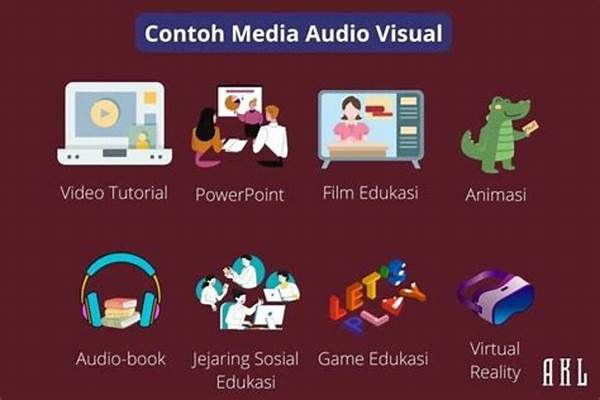In the bustling digital age, where information saturation and fleeting attention spans are the norms, audio-visual media stands out as a shining beacon, enhancing comprehension and retention in ways that print alone cannot. Imagine being able to recall with crystal clarity the lessons of yesterday, not because of diligent note-taking, but because of an engaging video presentation that hit the nail right on its head! It’s no coincidence that educators, marketers, and entertainers alike turn to audio visual media to leave lasting impressions.
Read More : How To Choose A Video Camera For Short Film Production
But what makes audio visual media so potent? Is it just the mix of sound and imagery? Or is there a deeper, more profound connection to our cognitive processes, especially when it comes to memory recall? This article aims to unravel this enigma through captivating storytelling, intriguing research findings, and humor-laden insights that will make you see your favorite YouTube videos in an entirely new light. Buckle up, because this will be a rollercoaster of understanding – exclusive insights await!
Why Audio Visual Media Resonates with Human Memory
It’s no secret that humans are wired to be visual creatures. Our ancestors relied on keen sight and sound to evade predators and find food. But pairing these senses in audio visual media unleashes something phenomenal – a synergistic recall superpower. According to recent statistics from cognitive psychology research, people remember only 10% of what they hear and 20% of what they read. However, they recall up to 80% of what they see and do, especially when such experiences are vivid.
Our brains are designed to process images 60,000 times faster than text, which explains the magnetic pull of videos over books in education and marketing. As researchers have noted, audio visual media can create “episodic memories” – the kind that keep viewers coming back for their favorite Netflix series and viral TikTok content. This dual-sensory input creates richer, more immersive experiences that bolster retention and recall.
The Science Behind Audio Visual Media and Memory
The connection between audio visual media and its deep connection to human memory recall is deeply rooted in how our brain compartments function. Audio elements stimulate the temporal lobe, which processes sounds, while visuals engage the occipital lobe. Together, they form robust neural pathways, making it easier for the brain to store and retrieve memories.
This phenomenon mirrors the findings from investigations conducted at leading universities that show an increased engagement in the hippocampus – the brain’s memory center – when subjects are exposed to audio-visual content versus non-engaging counterparts. Furthermore, the vividness of experiences through such media engages emotional centers of the brain, adding an affective component that cements these memories even further.
Tapping into the Marketing Potential
Understanding the audio visual media’s prowess extends beyond infotainment; it’s a goldmine for marketers aiming to foster strong brand recall. In today’s crowded marketplace, where product pitches are a dime a dozen, standing out means creating memorable experiences. Brands that incorporate memorable stories, catchy jingles, and striking visuals embed themselves in the consumers’ subconscious.
How Educators Leverage Audio Visual Techniques
Moving beyond marketing, the applications of audio visual media in education are revolutionary. Teachers and professors can witness light bulb moments from students, thanks to interactive and multi-sensory teaching methods. Audio visual tools aren’t merely supplementary; they’re transformative, leading to increased engagement, comprehensive understanding, and heightened memory recall.
Exploring the Impact of Audio Visual Media in Practice
To fully grasp audio visual media and its deep connection to human memory recall, consider these scenarios:
Real-Life Examples and Applications
Consider these effective applications of audio-visual media:
Read More : Audio Visual Equipment For Modern Meeting Rooms
1. VR Experiences for Training: Aviation and medical trainees benefit from immersive VR environments that mimic real-life scenarios, honing skills without real-world consequences.
2. Interactive Webinars: Educational institutions increasingly employ webinars complemented with intuitive graphics to foster engagement and reinforce concepts.
3. Social Media Platforms: Platforms like Instagram and TikTok, designed around audio-visual content, leverage the media to boost both brand visibility and user interaction.
Each of these examples embodies the potential of audio visual media as tools for enhancing memory recall across various contexts and industries.
Unlocking Memory with Audio Visual Media
Key Takeaways
Audio visual media goes beyond simple engagement: it’s a catalyst for deeper, more durable memory encoding. From educators teaching complex theories to marketers building brand narratives, leveraging visuals and sound can bridge comprehension gaps and ensure the information not only sticks but resonates.
The Persuasive Power of Sensory Synchronization
By intersecting audio and visuals, creators can craft experiences that hit emotional and rational chords alike. Whether through a blockbuster movie, an evocative TED talk, or an enchanting advertisement, the potential for creating indelible memories is vast and varied.
Conclusion: The Future of Audio Visual Media
As technology advances, the possibilities for audio visual media and its integration with human memory will continue to evolve. The continued exploration of this deep connection will undoubtedly nurture innovations that will transform education, marketing, and entertainment in exciting, unforeseen ways. So, keep your eyes and ears open – the future of memory recall is as vibrant and dynamic as the media that inspires it.
